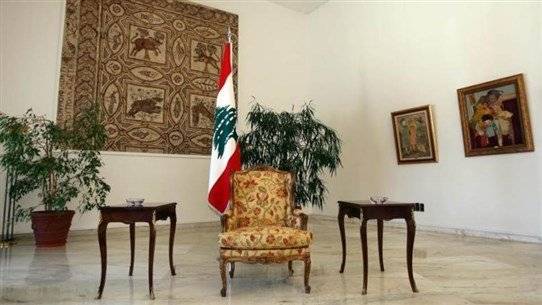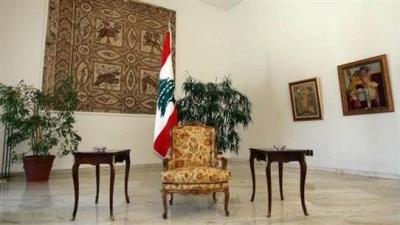The apparent Lebanese focus is on electing a new president for the republic. Lebanese citizens are preparing their ballots for this upcoming election, discussing it in their diplomatic meetings or with international officials, gathering opinions from influential Western and regional powers. However, the substance of the discussion goes deeper than just the president: it concerns his personality, characteristics, alliances, and whether he is centrist or aligned with a specific faction. Regional and international powers in Lebanon emphasize the post-election phase: will the president's program align with the prime minister and the council of ministers collectively, particularly regarding reforms and other issues?
**Between Consensus and Power**
This interest stems from examining the experience of President Michel Aoun, who was brought to power under the "strong president" equation. However, the consequences of his term led to collapse, with his opponents holding him responsible for what occurred, while he blames the system and its pillars, referred to as the Taif system. Regardless of these details and accusations, the conclusion is clear: a failure that resulted in a collapse affecting all Lebanese. This failure arose from conflicts and disagreements between Aoun and his opponents, indicating that the "strong president" equation did not succeed.
Lebanon has experienced several significant trials in recent times that must be analyzed. The formula for electing a consensus president was evident in the election of Michel Sleiman, leading to a government based on balance between the two factions in the country. Despite this, good political and economic conditions were achieved in the first three years of Sleiman's presidency. A significant turning point occurred in 2011 with the new experience of forming a one-color government composed of Hezbollah and the Aounist movement. This led to an expansion of political crises that negatively impacted the economic reality, demonstrating the failure of this experiment.
**The Failed Presidential Settlement**
Before the end of Michel Sleiman's term, everyone sought a settlement to create a "conflict management" government to oversee the inevitable presidential vacuum, resulting in Tamam Salam’s government, which restored some balance before entering a new phase marked by Michel Aoun's election. Aoun and Hezbollah achieved a significant political victory and accepted forming a government led by an opposing figure, Saad Hariri. The president was aligned with the March 8 coalition led by Hezbollah, while the prime minister belonged to the March 14 coalition. This phase aimed to arrange relations and manage the country according to the requirements of this settlement. However, the experience quickly proved a political and economic failure and led to an imbalance in political power. It also resulted in halting access to international assistance due to the failure to implement necessary reforms, culminating in the final split between Hariri and Aoun.
**Wasting Time and Collapse**
Aoun and Hezbollah repeated the experiment of forming a government loyal to them under Hassan Diab, a failure worse than all previous attempts, leading to Hezbollah and its allies reaching a point of suffocation with Diab's government, which was then toppled. This further evidenced the failure of this experience. The choice shifted to Naji Gebran Mikati’s government after Hariri and Mustafa Adib’s inability to form a government. Mikati's government aimed to pass decisions and obligations within the framework of stalling and limiting the collapse, but it did not yield any solutions, settlements, or internal agreements aligned with an external vision.
**International Pressure: Two Harmonious Presidents**
Based on these experiences, a fundamental question arises: will the coming election be limited to the presidency, or does it transcend to a complete and integrated package? Diplomatic sources suggest that the international community is focusing on what follows the president's selection and how to form the government, ensuring that the two presidents cooperate rather than enter conflicts. The election of a new president cannot be confined to its influence on the new prime minister; rather, it will pave the way for many political pathways.
Electing a new president establishes a fundamental trajectory, beginning with whether his election leads to amendments or developments in the Lebanese political system. If the president's personality is contentious, the country is heading toward worse conditions. Influential powers recall these experiences, concluding that there must be integration and harmony between the prime minister and president. This requires consensus on centrist figures with qualities of internal and external trust to minimize losses and establish a reform or rescue plan. International pressure thus centers on preventing the repetition of any previous experiences: no selection for a president and prime minister aligned with one faction. Nor should there be a president aligned with one faction while the prime minister represents the opposing faction.
This is where the conversation begins.




